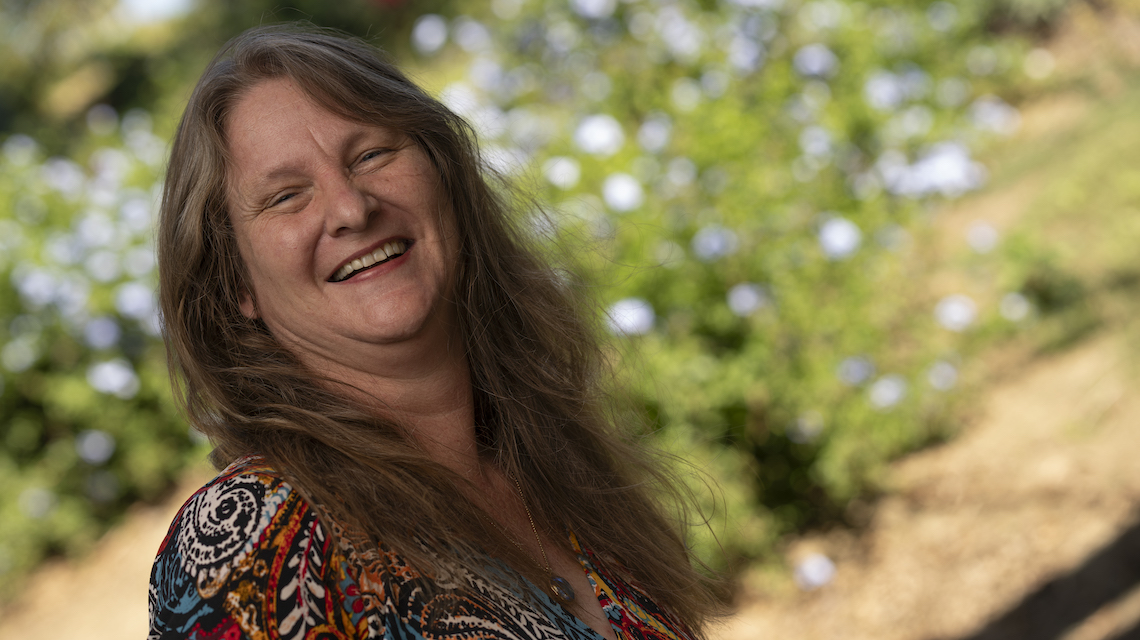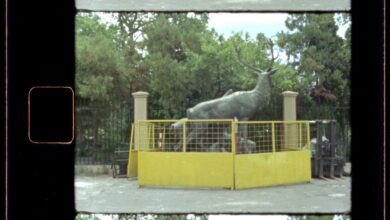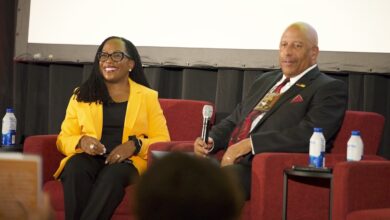
Not everyone is willing to unpack their past—particularly when it is traumatic or extreme. But Sonja Ulrich, lecturer of anthropology and behavioral sciences, unflinchingly owns her story and the hard-won lessons she has learned from her life experiences. For more than 30 years, she has been rebuilding herself in the aftermath of her tumultuous youth and involvement with the Rajneesh movement, which many experts describe as a cult.
Born in Germany and raised by a single mother, Ulrich had what she describes as an “unstable” upbringing. Her mother, who faced many challenges as a single parent, became involved with European communes founded by Rajneeshees, followers of Indian guru Bhagwan Shree Rajneesh.
“I welcomed my mother’s involvement, because I began to see amazing, positive changes in her,” Ulrich says. “So much so that when I was twelve, I asked to be initiated as a disciple myself.”
At the time, Rajneeshees were building Rajneeshpuram in central Oregon—“a utopia built on love and led by women,” as Ulrich describes it. The site did not allow for children, so Ulrich’s mother left her in Germany to join Rajneeshpuram. Ulrich lived alone in Germany from ages 12 to 13, then at different European satellite communes for the next four years, all the while separated from her mother.
“I didn’t feel abandoned, I felt like an adult,” Ulrich recalls. “The idea was that the commune would raise the children and take care of its own.”
During those years in the early 1980s, Ulrich became more enthralled in Rajneesh’s spiritual teachings and truly believed in his vision of utopia and enlightenment. When she turned 17, she was finally old enough for her chance to join Rajneeshpuram in Oregon. Despite swirling rumors of criminal activity and FBI infiltration of the site, Ulrich still wanted to go.
Shortly after her arrival in 1985, “the whole thing fell apart,” Ulrich says. “The guru was whisked out of the country, the FBI raided the ranch, and we were told to leave overnight.”
The 2018 Netflix documentary series Wild Wild Country tells the story of the rise and fall of Rajneeshpuram.
Ulrich later learned that Ma Anand Sheela, Rajneesh’s secretary and the de facto leader at Rajneeshpuram, had been secretly amassing weapons and carrying out bioterror attacks—including planting salmonella at restaurants, which sickened more than 700 people. For Ulrich, coming to terms with the dissolution and “incredible dark side” of her belief system and community would take decades.
“When that bubble burst, it was devastating for me,” she says. “It was complete mental collapse.”
Ulrich struggled to reintegrate into society, undergoing years of therapy throughout her adult life. Ultimately, higher education proved to be a beacon for her. Ulrich enrolled at CSUDH in the early 2000s as a human services major, but then discovered her love of anthropology—the study of humans, and why they do what they do.
“I finally felt I found my academic niche which embraces all life experiences,” Ulrich says. “The discipline examines every human aspect, and it does so on the core principle of being open-minded and non-judgmental.”
Ulrich graduated from CSUDH in 2009 with a bachelor’s degree in cultural anthropology and minor in bellydance history, then went on to earn her master’s degree in anthropology from CSU Long Beach. She began teaching as an adjunct professor at CSUDH in 2015, and over the course of her academic career, has found “amazing healing” through her discipline.
“I was offered the chance to teach a course on Psychological Anthropology, which I had never heard of,” Ulrich says. “In my preparation, I came across a book about cults which had the Rajneeshees in it. I had never thought of it as a cult or realized the full extent of what had happened to me.”
It was extremely painful for Ulrich to grapple with this new definition of her life experience, but it also made her realize how lucky she was to have survived. It also piqued her interest in psychological anthropology and led to her writing Introduction to Psychological Anthropology (Cognella, 2022) during the pandemic. Though Ulrich says part of her would like to delve further into researching the subject of cult survivorship, she is also wary of the emotional toll it could potentially take.
In the meantime, she will continue to share her story in the hopes it will inspire others to persist in the face of difficulties or trauma.
“I tell my students, ‘whatever you’ve been through doesn’t define you, and you can work through it,’” she says. “Even the biggest suffering can have a silver lining.”








